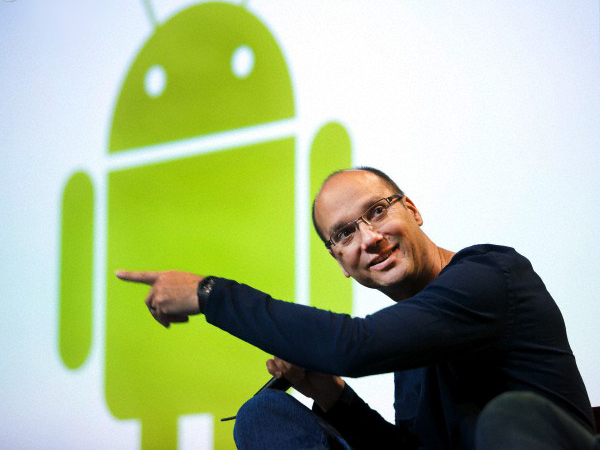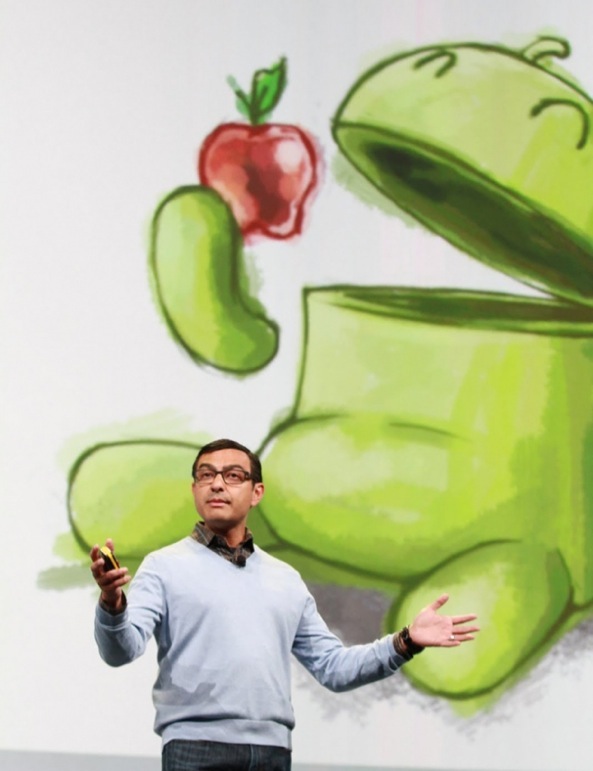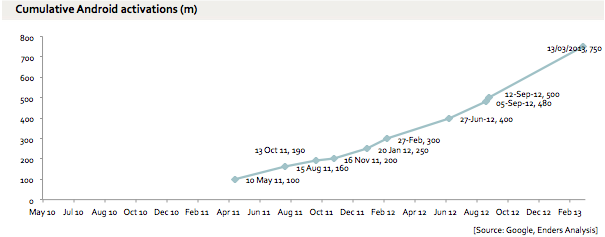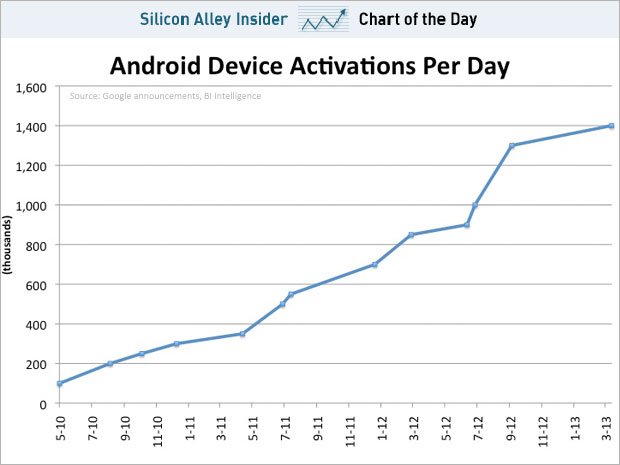In a totally unexpected move, Google Wednesday announced its long-time Android head and Senior Vice President of Mobile and Digital Content, Andy Rubin, is stepping down.
He will be replaced by Chrome vice president Cundar Pichai, who will lead Android, in addition to his existing work with Chrome and Apps. Google CEO Larry Page wrote in a blog post he expects Pichai to “double down on Android”, noting “the pace of innovation has never been greater”.
Despite Android’s indisputable lead in terms of device activations, latest data suggests that Apple’s iOS stole some share from Google’s mobile platform in the United States, the most important market for smartphones. The iOS platform is also the preferred choice for developers because Apple leads in terms of metrics that matter.
The decision to replace Rubin at the height of his career cries for parallels with Apple CEO Tim Cook’s firing of iOS boss Scott Forstall in August 2012, whose abrasive management style is said to have created unnecessary friction between key Apple executives…
According to the CEO himself, Andy has decided “it’s time to hand over the reins and start a new chapter at Google.”
Apple pundit John Gruber called it three months ago, BTW:
CEO fires ambitious leader of company’s primary OS.First Forstall. Now Sinofsky. If these thing come in threes, Andy Rubin is next.
— John Gruber (@gruber) November 13, 2012
Here’s Vic Gundotra in front of the huge anti-Apple slide at Google I/O 2011, when Rubin noted the pace of Android activations was accelerating at a rapid clip.
Google’s Larry Page in a blog post titled ‘Update from the CEO’ wrote that “Sergey and I first heard about Android back in 2004, when Andy Rubin came to visit us at Google”, adding “most people thought he was nuts” because he believed he could aligning standards around an open-source operating system.
Andy tweeted 275 days ago he had no intention to leave Google.
No plans to leave Google.Oh, and just for meme completeness — there are over 900,000 android devices activated each day :-)@scobleizer
— Andy Rubin (@Arubin) June 10, 2012
Pago also wrote:
Today we’re living in a new computing environment. People are really excited about technology and spending a lot of money on devices.
This is driving faster adoption than we have ever seen before. The Nexus program—developed in conjunction with our partners Asus, HTC, LG and Samsung—has become a beacon of innovation for the industry, and services such as Google Now have the potential to really improve your life.
We’re getting closer to a world where technology takes care of the hard work—discovery, organization, communication—so that you can get on with what makes you happiest… living and loving. It’s an exciting time to be at Google.
Page did not say what Rubin’s new role at Google would be. What we know is that going forward, Sundar Pichai will lead Android, in addition to his existing work with Chrome and Apps.
The man “loves a big bet,” Page wrote, adding he knows “Sundar will do a tremendous job doubling down on Android as we work to push the ecosystem forward.”
Rubin bid adieu to Android partners in an email message obtained by The Wall Street Journal.
Dear friends,
In November of 2007 we announced the Open Handset Alliance with 34 founding members. Today, I’m grateful to the over 85 OHA members who have helped us build Android and drive innovation at such an incredible pace. The Android ecosystem has seen tremendous growth since the launch of the very first Android device in October 2008. The volume and variety of Android devices exceeds even my most optimistic expectations — over 750 million compatible devices and counting!
At its core, Android has always been about openness — the idea that a thousand brains are better than one. Just as the ecosystem has grown, so has our team at Google. I am incredibly proud of the phenomenal group of people that spend their days (and nights) building the Android platform and services. Just look at last year…a lean yet incredibly ambitious team released Jellybean with Google Now, launched Google Play in many languages and countries and collaborated with several partners to build three new Nexus devices to help drive innovation in the ecosystem.
Today, the success of Android combined with the strength of our management team, gives me the confidence to step away from Android and hand over the reins. Going forward, Sundar Pichai will lead Android, in addition to his existing work with Chrome and Apps. Hiroshi Lockheimer — who many of you already know well — plus the rest of the Android leadership team will work closely with all of our partners to advance Android and prepare the platform for new products and services yet to be imagined.
As for me, I am an entrepreneur at heart and now is the right time for me to start a new chapter within Google. I am amazed by what we have accomplished from those early days (not so long ago!), and remain passionate about the power of a simple idea and a shared goal — an open source platform freely available to everyone — to transform computing for people everywhere.
Thank you for your support,
– andy
Back to Page.
The Google CEO also shared the latest Android stats: 750 million cumulative device activations, 25 billion apps downloaded from Google Play and over 60 manufacturers on board supporting the platform. The company in September 2012 reported 500 million Android activations.
Chart via Benedict Evans.
Rubin, who owns four patents and is worth an estimated hundred million bucks, is a Jew who grew up in Chappaqua, New York. After co-founding a startup called Danger, Rubin and his like-minded friends founded Android, Inc. in October 2003.
Business Insider notes that Rubin’s ousting arrives at a time when Android’s growth appears to be slowing.
Though Android is still up annually, going from 850,000 daily activations in February 2012 to 1.4 million daily activations today, the platform appears to be flattening on a sequential basis.
Updated estimate for 1 billion Android activations: mid-August 2013
— Horace Dediu (@asymco) March 13, 2013
The Palo Alto startup would get picked up by Google on August 17, 2005, making it a wholly owned subsidiary of the Internet giant and putting Rubin in charge of Android development.



